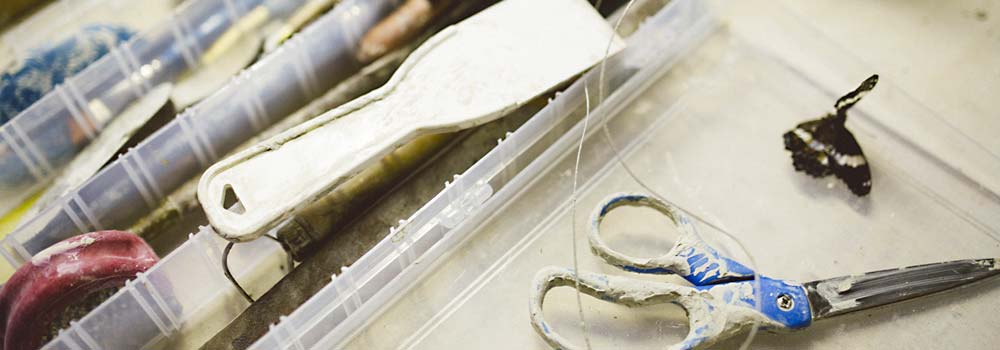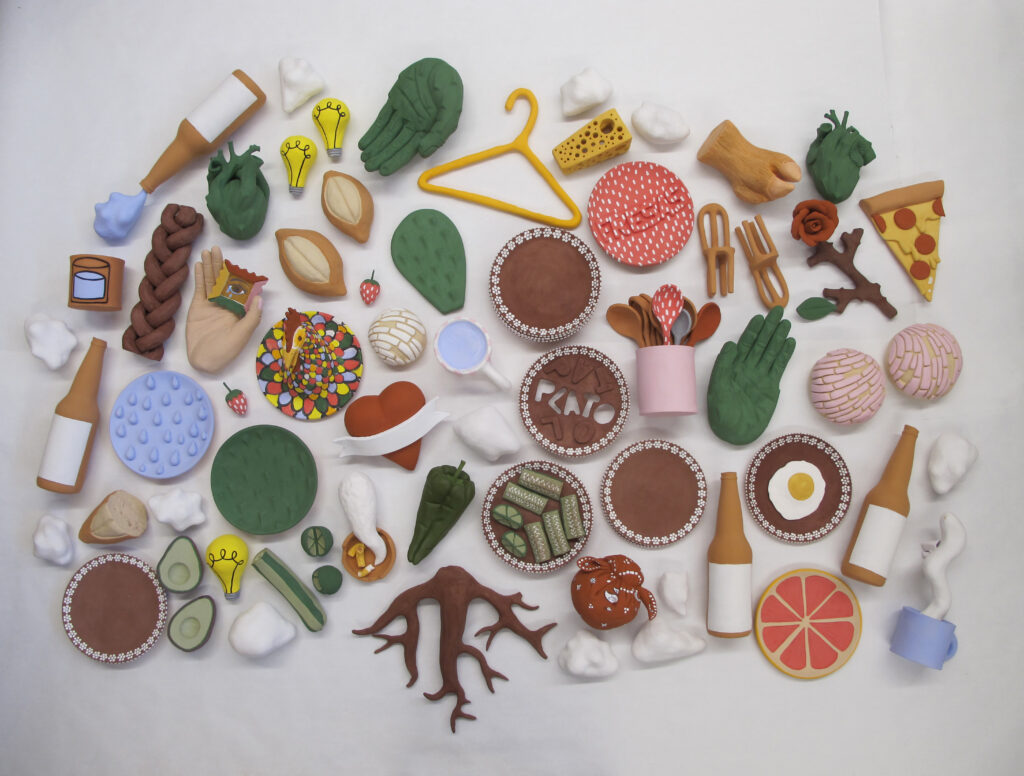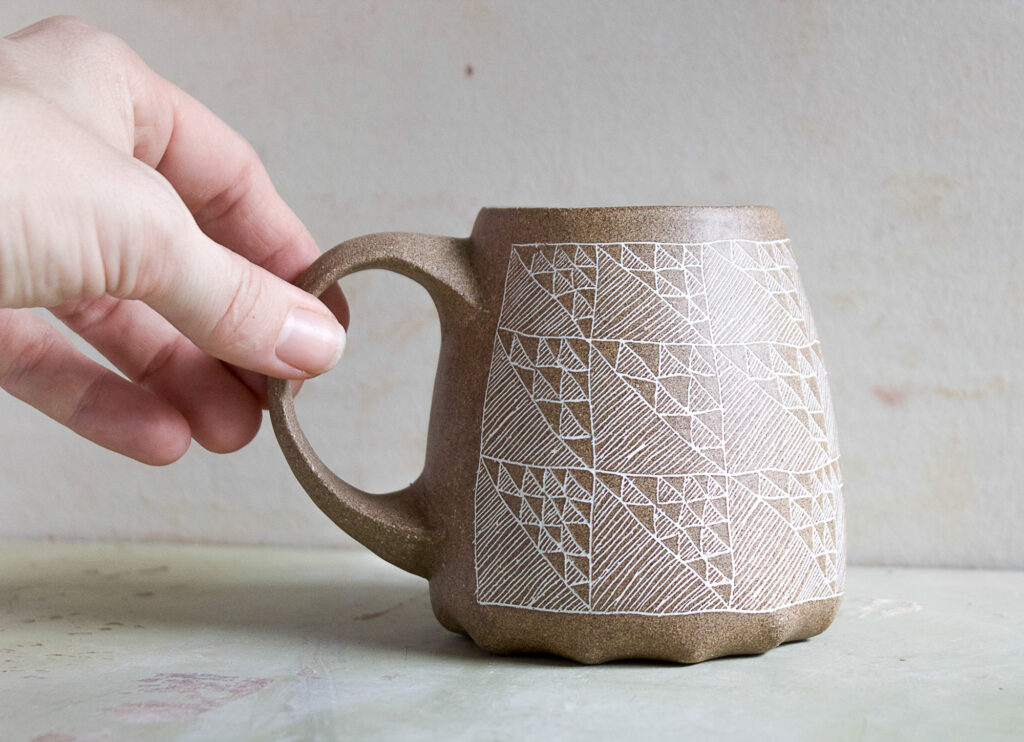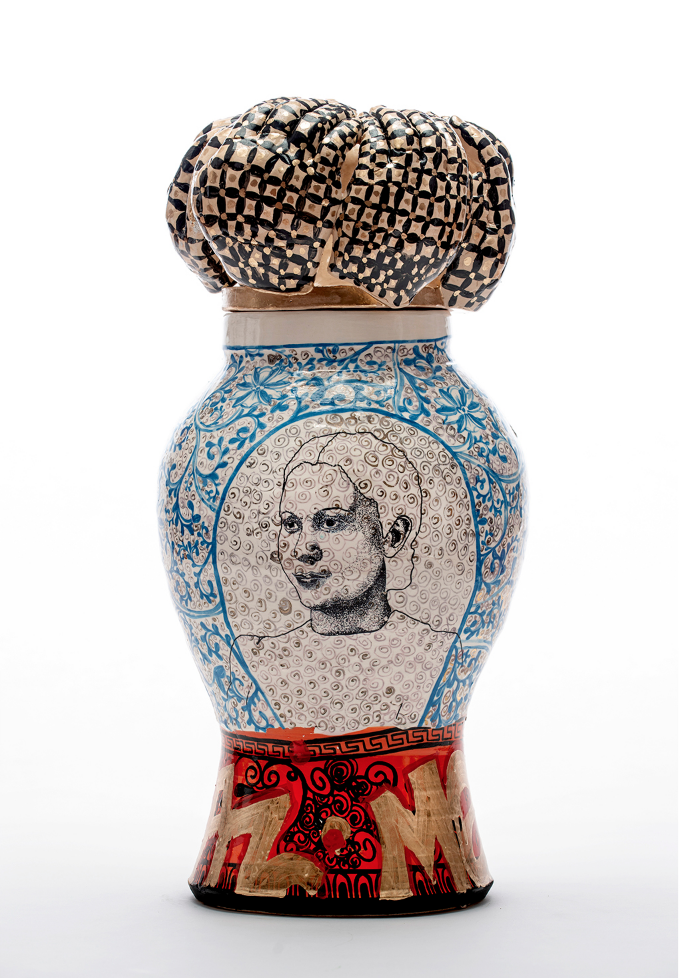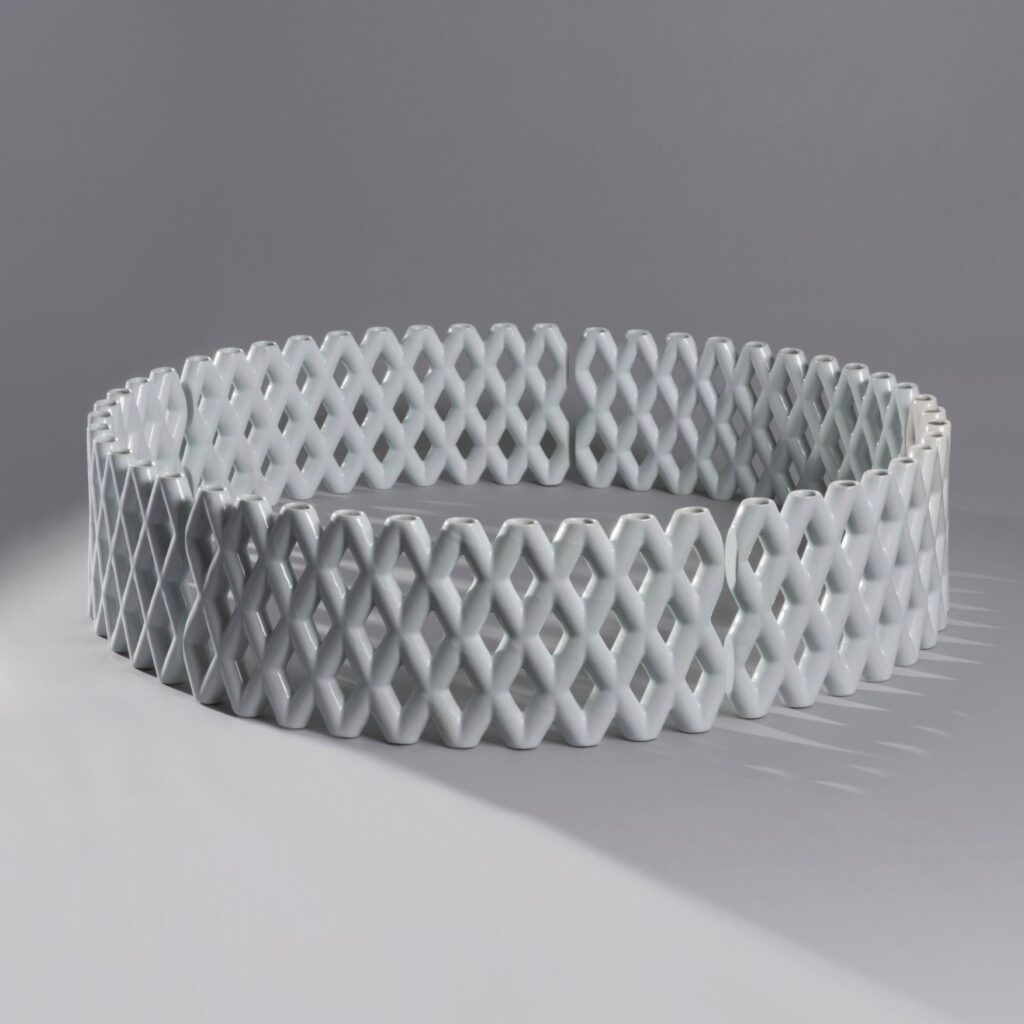In this guest post, Bech Evans and Margaret Kinkeade share the inspiration and ideas that led the Kindred Clay collective to organize 2020 Summer Residency Session IV: Agents of Change. Additional participating artists include Christina Erives, Roberto Lugo, and Brooks Oliver. Space in the session is available for those interested in joining the group from July 20-August 1. Learn more and register for this session.
Graduate school is a kind of trench that forges friendships between the most incompatible and dissimilar people. That’s not exactly us. The members of Kindred Clay have a rare chemistry and huge admiration for each other, as makers and as people. We love each other’s work and envy each other’s skill sets. I (Bech here) have, at some point, secretly wished to be and have the experiences of each in this group.
We enjoy an uncommon diversity in our group. We’ve had conflicts and have real differences, from the way we experience the world as a result of our bodies and identities, down to our work and how we make it. Sustaining and deepening our friendships and collaborating professionally over the last eight years has required vulnerability, acceptance, personal growth, and adaptation. As we navigate through lives and careers, maintaining a group identity has involved lots of growth, trust, and forgiveness.
I (Margaret here) organized this session because I wanted two weeks of studio time and conversation. I wanted to meet you and to learn about what makes you, you. Why do you make work? Who do you make work for? We’re looking for two weeks of face-to-face conversations in a progressively distant and digital world—conversations that challenge preconceived ideas of who we are, what we have in common, and how we’re different. We’re looking for growth.
I (Bech here) have spent the last four and a half years in the field of student affairs. This field prioritizes and engages, in an explicit way, work on diversity, equity, and inclusion; social justice; and intercultural consciousness. Kindred Clay members have also navigated this work in a mostly individual, intuitive, and implicit way over the last eight years.
“We want people to be woke, but we don’t want to create the space for people to wake up.” —Jamie Washington
This residency session will be a really new experience for us, and perhaps for you too. I want to tell you more about what you can expect.
None of us can, once and for all, figure out how to foster diversity or create social justice, because every person and community is complex and different. However, we can build skills and practices that support equity and inclusion. I’m excited to explore three areas during our time at Watershed: identity development (awareness of our multiple, intersecting identities, our privilege, and our marginalization), social justice (just distribution of wealth, opportunities, and privileges in society), and intercultural consciousness (communicating across differences and building meaningful relationships). Together, we’ll approach these conversations and activities with the same hands-on, risk-filled approach we take when working in the studio.
We’ll explore how our identities shape our worldview and influence our behavior. You can expect small group conversations and individual reflection. The aim is to spend time in real conversation, learning from each other. Just like when we make work, these conversations will involve risk-taking and vulnerability! A willingness to make mistakes is a prerequisite as we contend with fear and shame that can often be paralyzing. We will learn, grow, and change during our two weeks together.
Margaret here. Is what Bech wrote exciting you? Does it challenge your idea of a ceramics residency? Does that bring up some fear or anxiety for you? Me too.
Trying new things in the studio can be a quiet, solitary exploration with a humble material and generous room for unseen failures. But when I think of the objects I’ve made, the ones I love most resulted from conversations. Conversations with the material, myself, and my peers about how it functions, how it feels in the hand, if it’s honest enough, if it’s “good” enough, why it didn’t work. Just think of the conversations we will have as an extension of your practice. Delve deeper into the internal dialogue about what you make, who you are, and how you fit into our intimate and extended community by inviting others into it. This is a chance to be vulnerable, to ask questions, and to be brave both in conversation and in the studio. We hope you’ll join us.
Register here to join Kindred Clay for this session.
